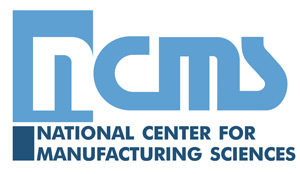Digital Manufacturing Integration for Supply Chains – Phase II
NCMS Project #: 142009
Problem: Industry and DOD are facing advances in technology and manufacturing that current outdated design processes and methodology cannot keep pace with or use efficiently to minimize program timelines and costs. Digital manufacturing tools can now generate topology optimized (organic shapes) designs creating toolsets for repair and maintenance work, to accelerate replacement of hard-to-find tools. Phase II is needed so that a final concept chosen from Phase I can be developed in parallel with testing to validate the concept ideation phase.
Benefit: Developing a feasible solution to these design and sustainment issues within a large organization such as the U.S. Army will demonstrate to the private industry what solutions are possible. The resulting methodologies are expected to be easily transferable to commercial industry and to positively impact delivery of products to the public.
Solution/Approach: In Phase I of this initiative, novel Robotic Combat Vehicle (RCV) concepts were developed that focused heavily on utilizing the most advanced manufacturing methods available to rapidly design mission specific systems. In Phase II, the team will further develop components for one RCV concept chosen. Phase II will generate the concept in CAD and validate the design through testing simulations as well as physical testing. The final RCV design shall be provided in 3D CAD, 2D detailed drawings, and VR with all virtual and physical testing done to validate the designs.
Impact on Warfighter:
- Expand modularity of systems and optimization of parts
- Improve delivery time of products and point-of-need distribution
- Increase AM capabilities for customizable need-specific designs
- Reduce labor hours, costs and maintenance footprint
- Strengthen warfighter readiness
DOD Participation:
- U.S. Army
- U.S. Marine Corps
- U.S. Special Operations Forces Veterans
- Oak Ridge National Laboratory
Industry Participation:
- Hackrod
- NCMS
Benefit Area(s):
- Cost savings
- Positive environmental impact
- Improved readiness
- Energy efficiency
Focus Area:
- Advanced/additive manufacturing
